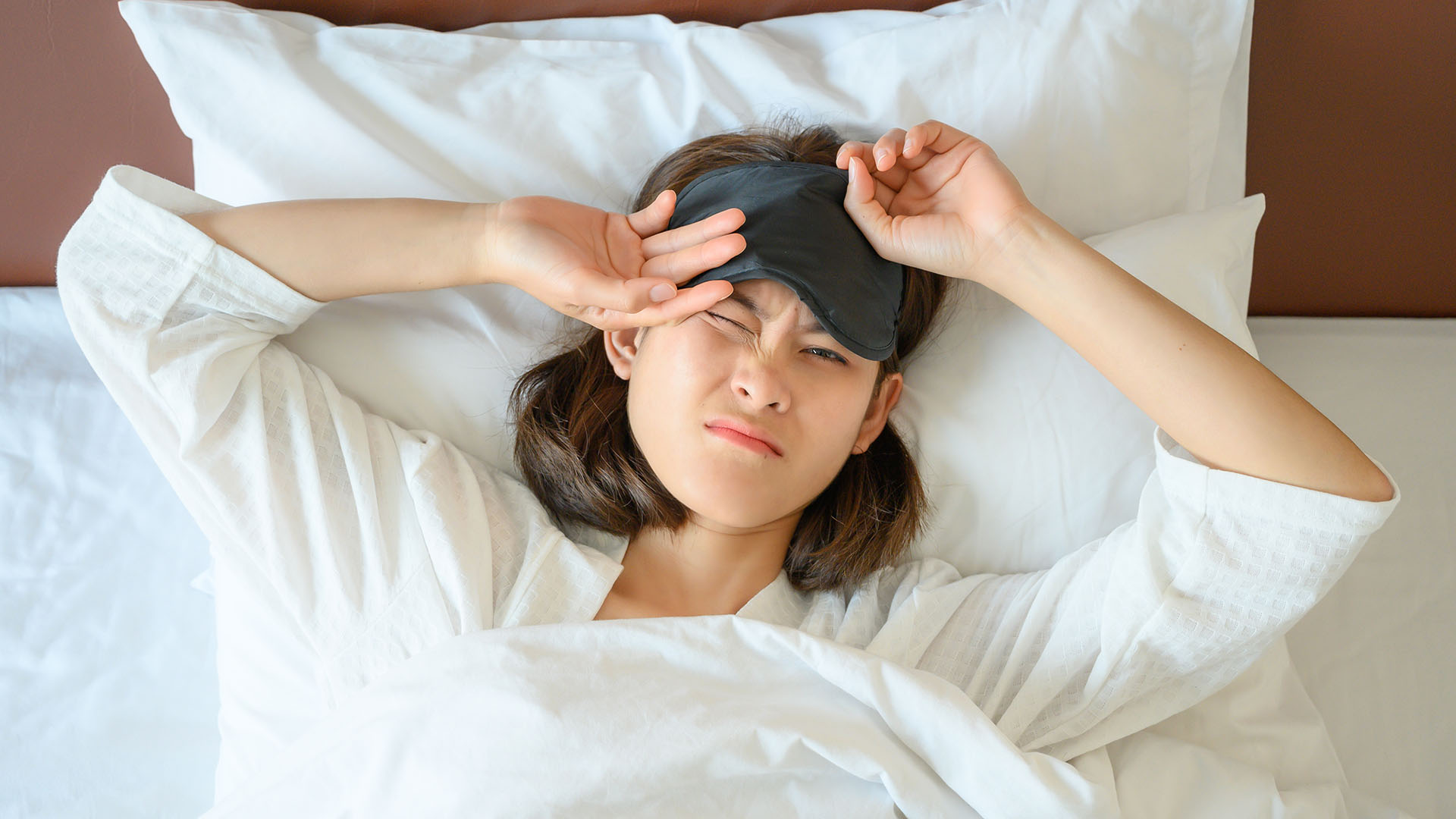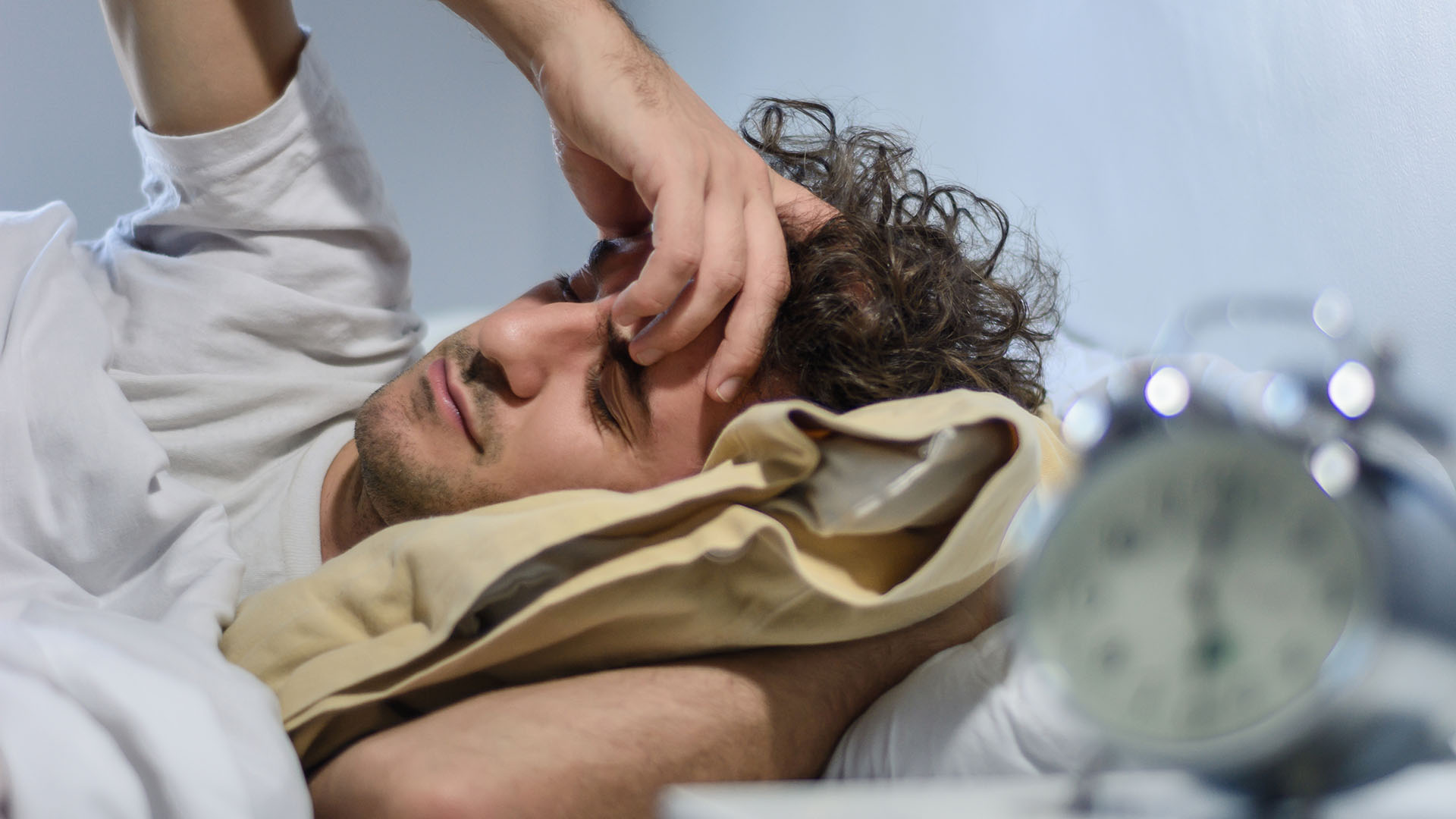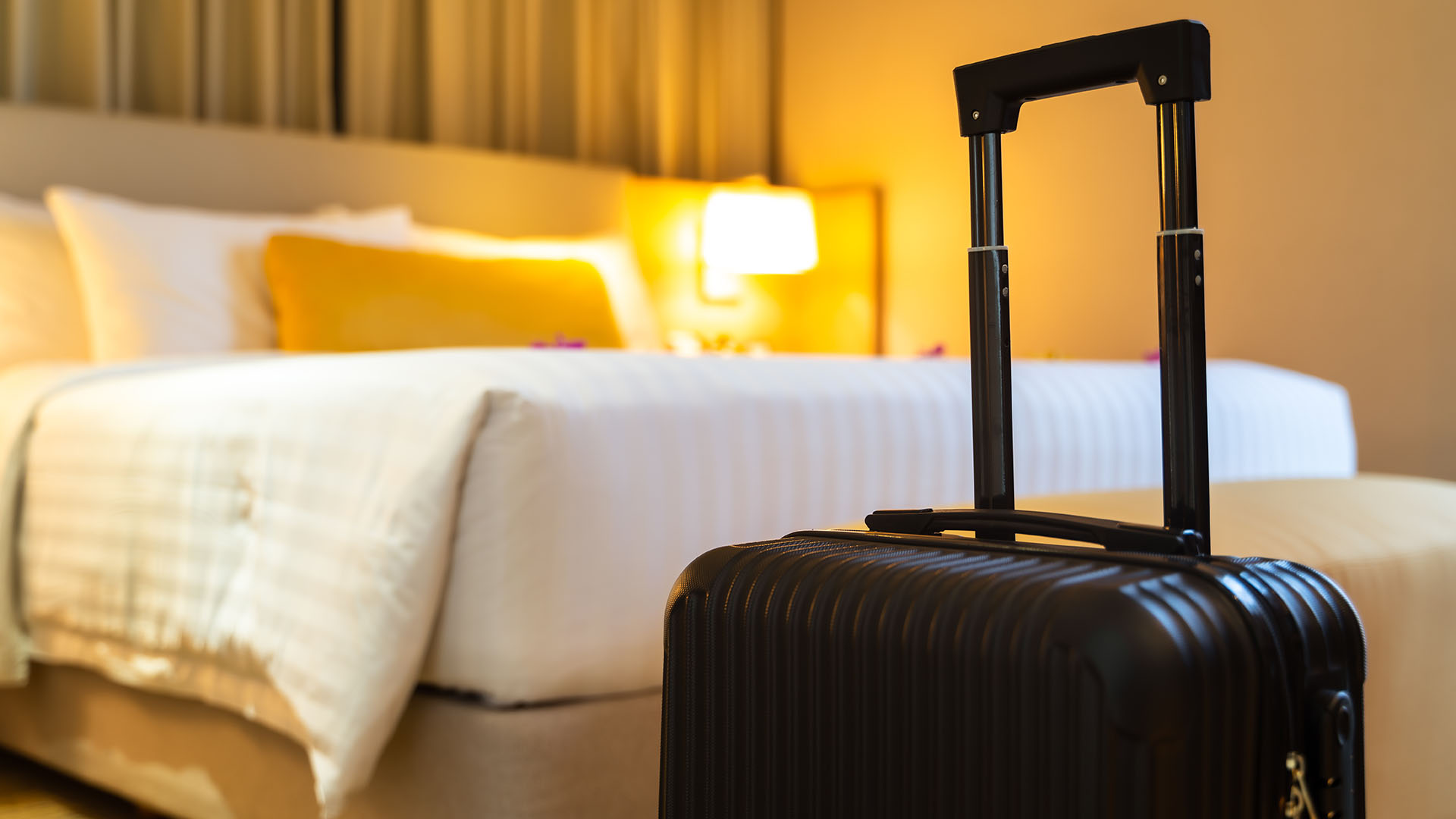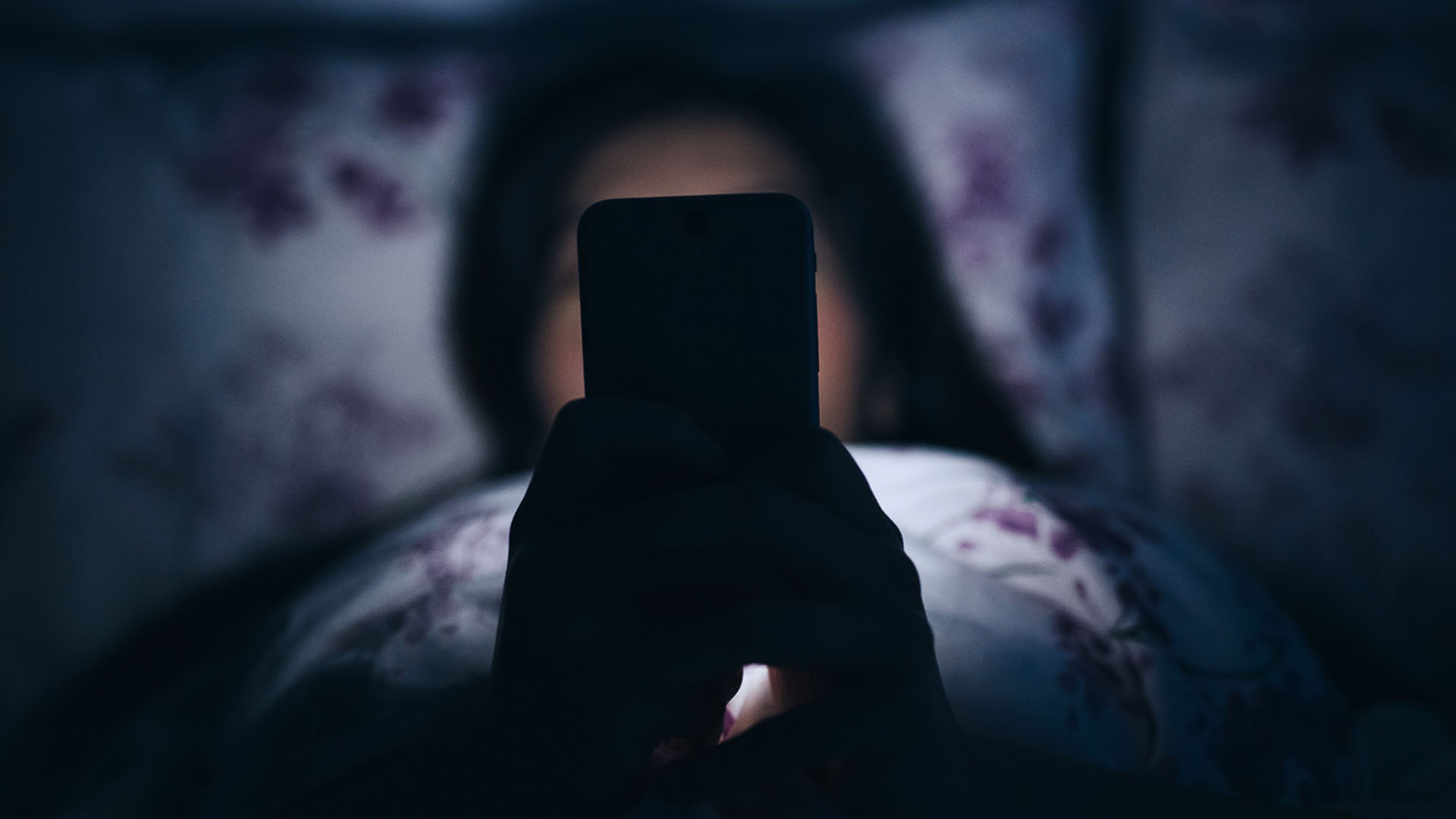
Have you ever found yourself unable to drift off to sleep upon arriving in a new environment? That's the first night effect. Whether you set off on vacation or moved into a new home, there's a good chance you were restless in bed that initial night—no matter how long your journey took or how exhausting the day's events were, or how comfortable your hotel mattress was. In fact, the same could have happened by spending the night at a friend or family member's place close by. This phenomenon can have a big impact on your sleep and next-day energy levels.
In this article, we're going to take a closer look at the first-night sleep effect, what causes it, and how to get your shuteye on track as you adjust to new surroundings.
What is the first night effect?
The first night effect is when people experience poorer sleep quality than usual during their initial night in a new sleeping environment. "Individuals often experience disrupted sleep, increased awakenings, and reduced REM sleep when sleeping in unfamiliar settings," explains Kelly Murray, a certified pediatric and adult sleep consultant.
What causes the first night effect? According to Kelly, it's believed to be a kind of in-built survival mechanism.
"The first night effect is grounded in the brain's evolutionary response to new or potentially unsafe environments," she says. "One hemisphere remains more vigilant than the other during sleep, possibly as a response to unfamiliar or potentially threatening surroundings."
By retaining a state of heightened vigilance, the body is more able to respond rapidly to any danger that might arise. This instinctual response to stay alert as a means of protection "can lead to unease and restlessness during the night, causing individuals to struggle with falling and staying asleep."

Is the first night effect a real thing?
Yes – the first night effect is a genuine scientific phenomenon. It was discovered decades ago in a lab setting, and ongoing research continues to support its existence.
For instance, per a small 2022 study of healthy adults published the journal Brain Sciences, participants sleeping in an unfamiliar setting experienced:
- Higher wakefulness after sleep onset
- Reduced sleep efficiency
- Less deep NREM stage 3 sleep
Higher sigma and beta activities in the left frontal and prefrontal areas of the brain, and significantly lower slow-wave activity in the right frontal and prefrontal regions of the brain
Research shows that heightened activity in the left inferior frontal gyrus (in the frontal lobe) can instigate sleep deprivation. All the while, the prefrontal cortex plays a role in meditating normal sleep physiology and dreaming. Simply put, the first night effect can trigger deviations in normal brain activity that can ultimately lead to a poor night's rest.
Does everyone experience the first night effect?
While brain activity and chemistry may change during your first night sleeping in a new setting, additional factors are also at play. Kelly notes that the first night effect is common and natural—but that doesn't necessarily mean that restlessness is inevitable for everyone.
"Its intensity and likelihood varies among individuals based on specific factors such as current sleep hygiene practices, transitions across time zones, the quality and familiarity of the new sleep environment, and individual personal and medical conditions," she explains.
For example, your circadian rhythms (aka internal clock) will naturally be thrown off if you're also throwing jet lag into the mix. If you're going to a distant land in a different time zone, already making it quite likely that your body and sleep patterns will require some time to adjust. (Here are some tips for how to sleep on a plane, which can help head that issue off.)
In other circumstances, it may be more specific to the person at hand (versus the environment). "Individuals with established sleep routines and healthy sleep habits may experience a milder impact," Kelly notes. Someone who typically sleeps well may not struggle as much with the first night effect if they spend a night away from home. Meanwhile, their co-sleeper may have trouble catching ZZZ's in the same new setting if their typical shuteye isn't great.

How can I avoid the first night effect?
While the first night effect is less intrusive than, say, a chronic sleep condition or disorder, that doesn't mean you need to resign yourself to a restless night and day-after fatigue.
The next time you spend a night outside of your home, employ some of Kelly's top tips to avoid the first night effect.
1. Take your sleep essentials on the road
According to Kelly, it's worth making space in your backpack or luggage for a few items that are already part of your nightly bedtime rotation. "Bring along comforting items like your own pillows or bedding to establish a sense of familiarity and comfort," she advises.
Of course, not everyone can bring their entire bedding set with them for a short stint away from home. However, perhaps a pillowcase or a blanket—and even smaller items like a scented candle or pillow spray you keep by your bedside—can help.
Bedding and bedside items aside, you may also want to bring a few packets of herbal sleep teas (especially chamomile) to brew.

2. Enhance your new sleep setting before bedtime
"Creating a sleep-conducive environment is key," Kelly shares. This includes but goes beyond maintaining familiarity with your typical sleep setting.
Once you get to your new overnight destination—whether that's a loved one's house, a hotel, or your new home—take the time and effort to set up your sleep space for success. "Adjust factors like room temperature and noise levels for maximum comfort," the sleep expert suggests.
When possible, aim to pick and choose from the following as needed:
- Set the thermostat lower
- Open a window for fresh, cool air
- Keep a fan on nearby
- Draw the shades
- Wear earplugs
- Listen to white noise (or other 'colored' noises) on an app to drown out undesired external sounds
3. Avoid stimulants
Naturally, you'll want to do what you can to avoid your food and drink intake to avoid messing up your sleep any further. Dietary stimulants like caffeine—as well as eating too close to bedtime, even if you're trying to make up for a lost mealtime in transit—may increase the severity and likelihood of the first night effect.
However, your pre-bedtime activities and sleep setting can also be stimulating, potentially doubling down on the first night effect. "To further optimize your sleep environment, reduce screen time and exposure to bright light in the hours leading up to sleep," Kelly advises. The same goes for activities like intense nighttime exercise and reading the news.
If your day was stressful, do what you can to ease out and come down from any stimulation. Simple ideas include closing your eyes and taking 10 deep breaths or listening to a guided meditation.

4. Establish and continue a nightly routine
Although spending a night or longer in a new environment may throw you off track, you'll have a better chance of avoiding the first night effect if your body is already in tune with specific actions or behaviors associated with sleep.
"Maintain consistency in your sleep schedule and bedtime routine when away from home," Kelly suggests. This will "support your body's internal sleep rhythm and cue your brain that sleep is coming."
Your nightly routine may include some of the examples shared above—such as lighting a candle, dimming the lights, or turning on a fan. However, it can also include everything from taking a warm bath and throwing on your favorite pajamas to writing in a journal or setting your phone to silent and placing it out of reach.







